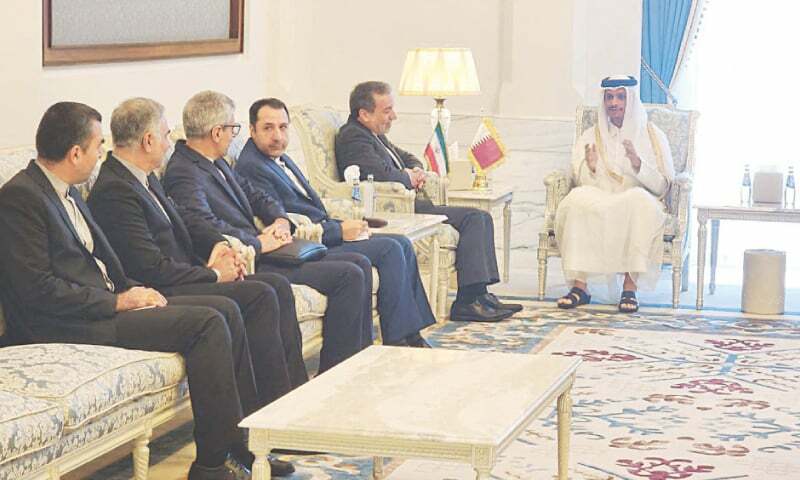
[ad_1]

DOHA: Iranian Foreign Minister Abbas Araghchi met his Qatari counterpart in Doha on Thursday, after Israel warned it would retaliate against his country for a missile attack last week.
Qatar has played a key role in efforts to secure Gaza ceasefire and has called for a truce in Lebanon, where Israel last month intensified air strikes against Hezbollah.
The wars were the subject of “important consultations” between Araghchi and his counterpart Sheikh Mohammed bin Abdulrahman Al Thani, Iranian foreign ministry spokesman Esmail Baghaei said on social media platform X. “It is only responsible for all states to maximise their efforts to shield our region against an imposed catastrophe by stopping genocide in Gaza and aggression on Lebanon,” he said after the talks.
Qatar’s foreign ministry said the pair “discussed the latest developments in the region, especially in the Gaza Strip and Lebanon”. Sheikh Mohammed, also Qatar’s prime minister, communicated his country’s “full readiness to do everything possible to enhance security and stability at the regional and international levels”, it added.
Araghchi’s visit came after Israel on Wednesday vowed to retaliate for Iran’s massive missile last week, stoking fears of a wider war in the Middle East.In a call between US President Joe Biden and Israeli Prime Minister Benjamin Netanyahu on Wednesday, the two sides agreed to stay in “close contact” as Israel considers its response to Iran.
‘Send a message’
On Wednesday, Araghchi was in Saudi Arabia where he met de facto ruler, Crown Prince Mohammed bin Salman, and his Saudi counterpart, Prince Faisal bin Farhan.
Tehran had said the talks were aimed at providing “better conditions” for Palestinians and Lebanese under Israeli attacks.
Iranian President Masoud Pezeshkian travelled to Qatar last week where he insisted Tehran was not looking for war with Israel but vowed a stronger response in the case of an Israeli retaliation for its missile attack.
Israel has been waging a year-long conflict in Gaza . Hezbollah began retaliation on northern Israel in the wake Oct 7, and since last month, Israel has significantly ramped up its strikes targeting Hezbollah leaders and infrastructure.
Neil Quilliam, a Middle East analyst, said with its outreach, “Iran is eager to show both the US and Israel that its effort to de-escalate tensions with the Gulf states is real and bearing fruit”.
“By doing so, it wants to send a message that Israel risks harming relations with the UAE and Bahrain… if it starts a wider conflict and that relations with Saudi Arabia are warming, whilst the prospect of Israel normalising is diminishing,” the Chatham House fellow said.
Published in Dawn, October 11th, 2024
[ad_2]
Source link






